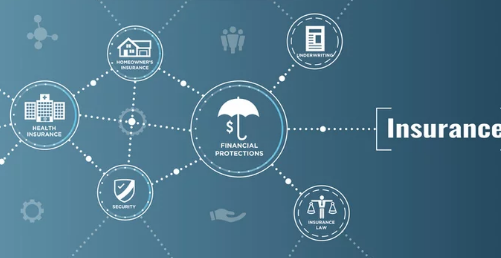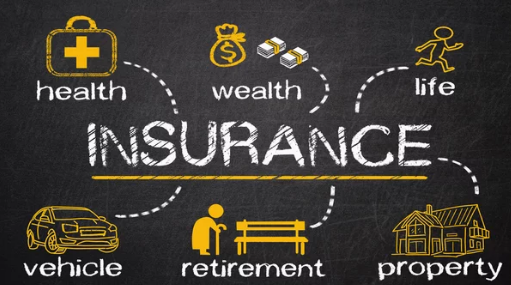Insurance is often seen as an optional expense—a recurring payment for something you hope you’ll never need. Yet, in reality, insurance is far more than a financial safety net. It is a cornerstone of personal security, business resilience, and long-term financial planning. Understanding why insurance matters can change the way you approach your finances, your lifestyle, and even your career.
This article explores the critical importance of insurance, the benefits it provides, and why having the right coverage is essential in today’s unpredictable world.
The True Purpose of Insurance
At its core, insurance is about protection against risk. Life is inherently unpredictable, and accidents, illnesses, disasters, or other emergencies can strike at any time. Insurance transfers the financial burden of these unforeseen events from individuals or businesses to a professional risk management entity—the insurance company.
Without insurance, a single incident—like a car accident, a house fire, or a major illness—can wipe out savings, derail retirement plans, or even threaten your family’s financial security.
Types of Insurance and Their Importance
Insurance comes in many forms, each serving a unique purpose:
1. Health Insurance
Covers medical expenses, surgeries, and hospitalization. Without it, even minor medical emergencies can result in massive bills. Health insurance ensures you can access care without financial ruin.
2. Life Insurance
Provides financial security for your loved ones in the event of your death. Life insurance is especially crucial if you have dependents or significant debts.
3. Auto Insurance
Protects against accidents, theft, and property damage. Auto insurance is legally required in most regions, and it safeguards you from costly liability claims.
4. Homeowners and Renters Insurance
Covers property damage, theft, and liability. It ensures that losing your home or personal belongings doesn’t translate into financial disaster.
5. Disability Insurance
Provides income replacement if you are unable to work due to injury or illness, maintaining your standard of living during challenging times.
6. Business and Liability Insurance
Protects businesses from operational risks, lawsuits, and property damage. For entrepreneurs, insurance is key to sustaining growth and credibility.
Why Insurance Is More Critical Than Most People Realize
1. Financial Security
Insurance prevents catastrophic losses that could otherwise deplete savings and investments. It acts as a financial shield, allowing you to recover without severe disruption to your life or business.
2. Peace of Mind
Knowing you are protected from major risks reduces stress and allows you to focus on personal and professional growth.
3. Legal and Regulatory Compliance
Certain types of insurance, like auto or workers’ compensation, are legally required. Maintaining proper coverage keeps you compliant and avoids fines or legal trouble.
4. Protects Loved Ones
Life, health, and disability insurance ensure that your family or dependents are supported even if you cannot provide for them.
5. Facilitates Business Continuity
For businesses, insurance helps manage risks, safeguard employees, and maintain operations in the face of unexpected challenges.
6. Encourages Responsible Risk-Taking
With insurance in place, individuals and businesses can take calculated risks, innovate, and pursue opportunities without fear of financial devastation.
Real-Life Examples of Insurance Impact
- Natural Disasters: Homeowners insurance allows families to rebuild after hurricanes, floods, or fires.
- Health Emergencies: Health insurance covers costly treatments, making life-saving care accessible.
- Car Accidents: Auto insurance protects against liability and repair costs, preventing severe financial loss.
- Business Losses: Liability insurance shields companies from lawsuits and operational setbacks.
These examples demonstrate how insurance is not just a safety net—it is a lifeline in times of crisis.
Common Misconceptions About Insurance
- “I’m young and healthy—I don’t need it.”
Accidents, illnesses, and emergencies can happen to anyone, at any age. Early insurance coverage often comes with lower premiums. - “It’s too expensive.”
While insurance involves a cost, the financial protection it provides often outweighs the premiums, especially when faced with major losses. - “I’ll only need it if something bad happens.”
The whole point of insurance is risk transfer—you pay to avoid paying far more in the future for unexpected events. - “I have savings; that’s enough.”
Savings can help, but major events like medical emergencies or business liabilities can exceed even substantial personal reserves.
Tips for Choosing the Right Insurance
- Assess Your Needs: Consider your financial responsibilities, assets, and risk exposure.
- Compare Providers: Look at coverage options, premiums, and customer reviews.
- Understand Policy Details: Know what is included, excluded, and the deductible.
- Review Periodically: Life changes may require updates to your coverage.
- Seek Professional Advice: Insurance brokers can provide guidance tailored to your situation.
Conclusion
Insurance matters more than most people think because it protects what you value most—your health, your family, your home, and your financial stability. It is a tool for resilience, allowing individuals and businesses to navigate uncertainty with confidence.
In a world full of unexpected events, insurance is not an expense—it is an investment in security, peace of mind, and long-term financial well-being.






